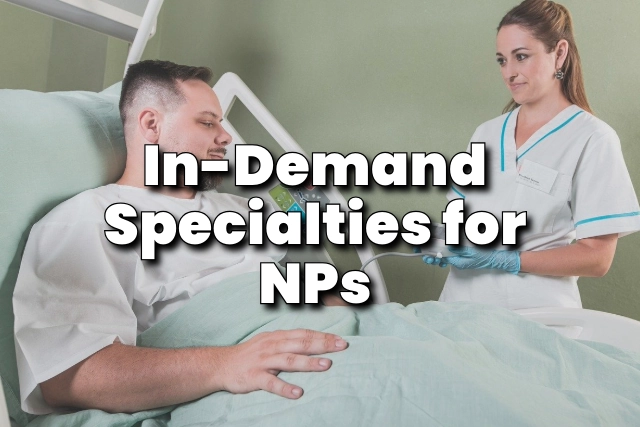What Skills are Needed to Work in a Hospice as a Nurse Practitioner?
Hospice is a specialized approach to healthcare that focuses on providing compassionate care and support to individuals with advanced or terminal illnesses, typically in the last stages of their lives. The primary goal of hospice is to enhance the quality of life for patients and their families by addressing physical, emotional, social, and spiritual needs. Hospice care emphasizes pain and symptom management, psychosocial support, and facilitating dignified end-of-life experiences. It is provided by an interdisciplinary team of healthcare professionals, including physicians, nurse practitioners (NPs), nurses, social workers, chaplains, and volunteers, who work together to ensure comfort, promote emotional well-being, and assist with advance care planning and bereavement support.
As of 2023, there are 8,262 hospices and palliative care centers in America, which is an increase of 2.1% from last year. With those numbers, there are certainly opportunities available for healthcare practitioners seeking to work in this setting.
NPs in the Hospice and Palliative Care Seeing. What Skills Do You Need?
Nurse practitioners in a hospice setting require a diverse set of skills to effectively care for patients nearing the end of life and their families. Here are some essential skills for nurse practitioners in a hospice setting:
Palliative Care Expertise: NPs should have a comprehensive understanding of palliative care principles, including pain and symptom management, psychosocial support, and addressing the holistic needs of patients and families. They need to be skilled in assessing and managing complex symptoms associated with advanced illnesses.
Communication and Counseling: Effective communication skills are crucial for NPs in a hospice setting. They should be able to communicate sensitively and compassionately with patients and their families, providing information, discussing treatment options, and supporting decision-making. NPs should also be adept at providing emotional support, counseling, and facilitating difficult conversations about end-of-life care.
Assessment and Care Planning: NPs need strong assessment skills to conduct comprehensive physical, psychosocial, and spiritual assessments of patients. They should be able to develop individualized care plans that address symptom management, advance care planning, psychosocial support, and coordination of care across the interdisciplinary team.
Pain and Symptom Management: Expertise in pain and symptom management is essential for NPs in a hospice setting. They should have a deep understanding of pharmacological and non-pharmacological approaches to alleviate pain, manage common symptoms like dyspnea, nausea, and anxiety, and address any changes in the patient’s condition effectively.
Emotional Support and Bereavement Care: NPs play a critical role in providing emotional support to patients and families facing end-of-life challenges. They should be skilled in providing psychosocial support, facilitating coping mechanisms, and addressing grief and bereavement issues.

Collaboration and Interdisciplinary Teamwork: NPs in a hospice setting work closely with interdisciplinary teams comprising physicians, nurses, social workers, chaplains, and other healthcare professionals. They should have strong collaboration skills, be able to work effectively within the team, and engage in interdisciplinary care planning and decision-making.
Cultural Competence: Hospice care involves serving patients and families from diverse cultural backgrounds. NPs should demonstrate cultural competence, respect for diversity, and an understanding of how cultural factors may influence end-of-life care preferences and decision-making.
Ethical and Legal Awareness: NPs need a strong understanding of ethical principles and legal regulations related to end-of-life care, advance care planning, and medical decision-making. They should be knowledgeable about applicable laws, advance directives, and the ethical considerations involved in providing care in a hospice setting.
These skills, along with ongoing professional development and a commitment to compassionate care, enable nurse practitioners to provide comprehensive and person-centered care to patients and families in the hospice setting.
Seeking a New Career Path as an NP in a Hospice Setting? We Got You.
Looking for a career as an NP in a hospice or similar environment? At Momentum Healthcare staffing, we match you to that perfect position. We are constantly adding new careers to our job board, from Locum Tenens to permanent opportunities. Please contact us today if you would like us to help match you!
Sources:
https://www.npace.org/
https://openai.com/









Recent Comments